Chinese Medicine Regulatory Office
Site Menu
Herbal Medicines and Heavy Metals
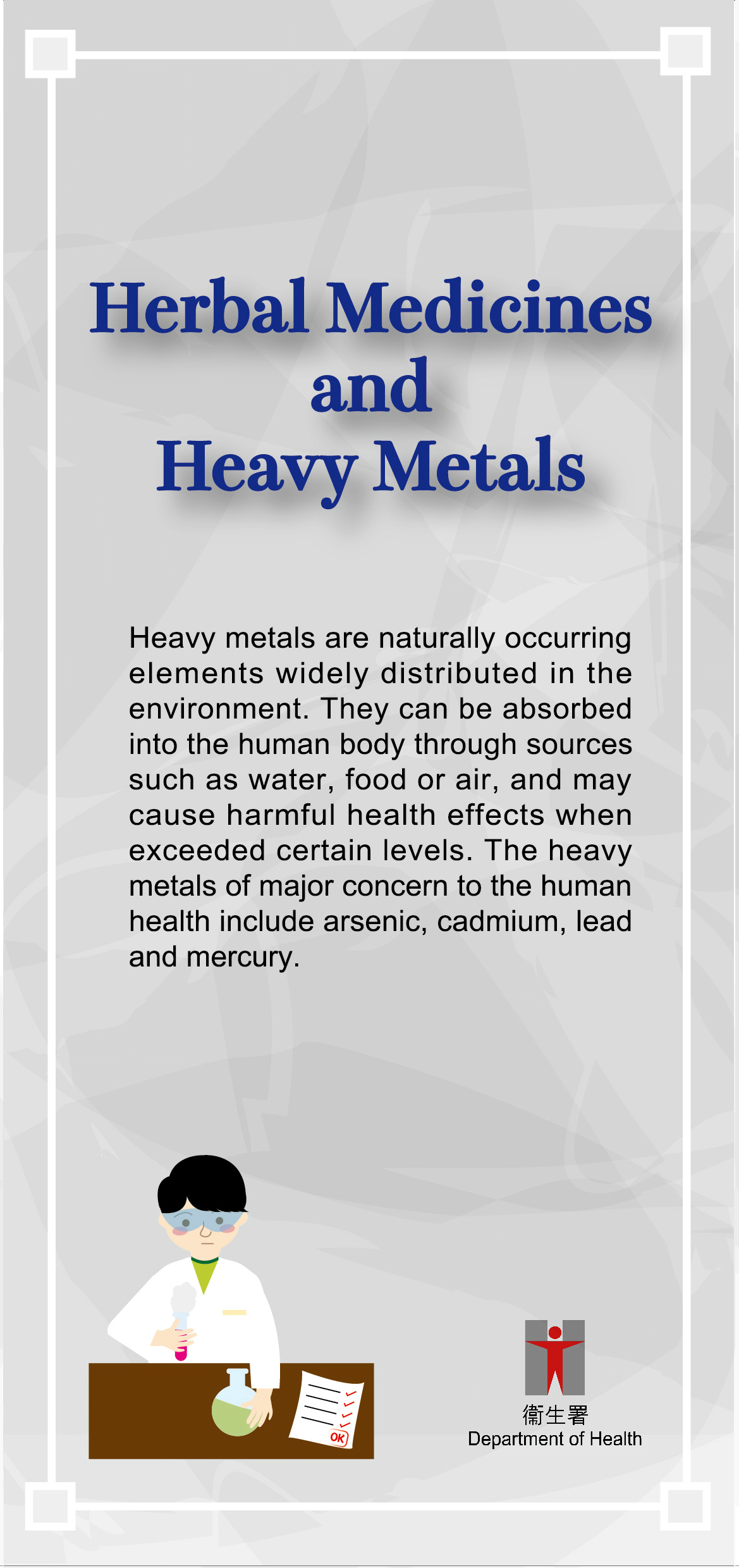
Herbal Medicines and Heavy Metals
Heavy metals are naturally occurring elements widely distributed in the environment. They can be absorbed into the human body through sources such as water, food or air, and may cause harmful health effects when exceeded certain levels. The heavy metals of major concern to the human health include arsenic, cadmium, lead and mercury.
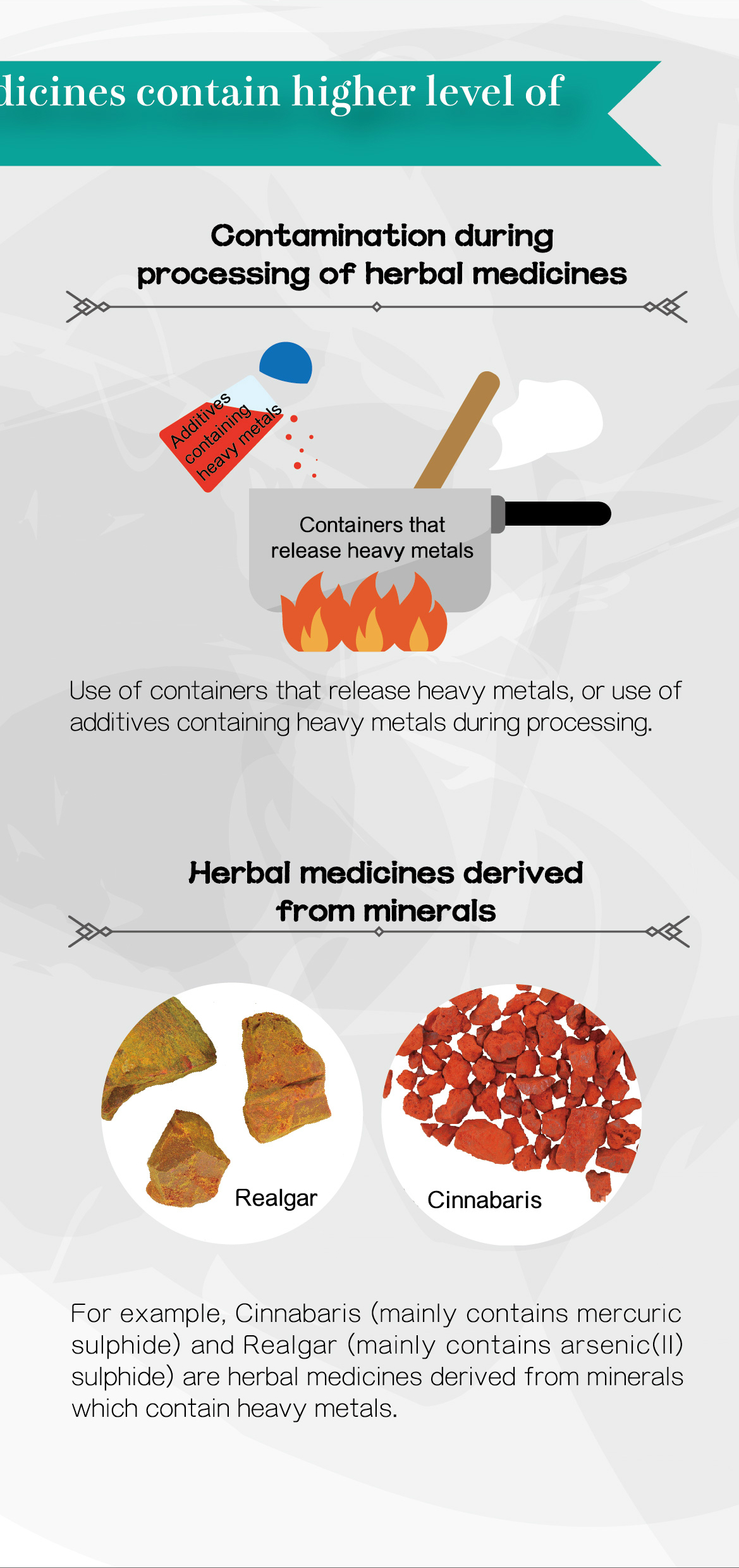
Why some herbal medicines contain higher level of heavy metals?
Contamination during processing of herbal medicines
Use of containers that release heavy
metals, or use of additives containing heavy metals during processing.
Herbal medicines derived from minerals
For example, Cinnabaris (mainly contains mercuric
sulphide) and Realgar (mainly contains arsenic(II) sulphide) are herbal medicines derived from minerals which
contain heavy metals.
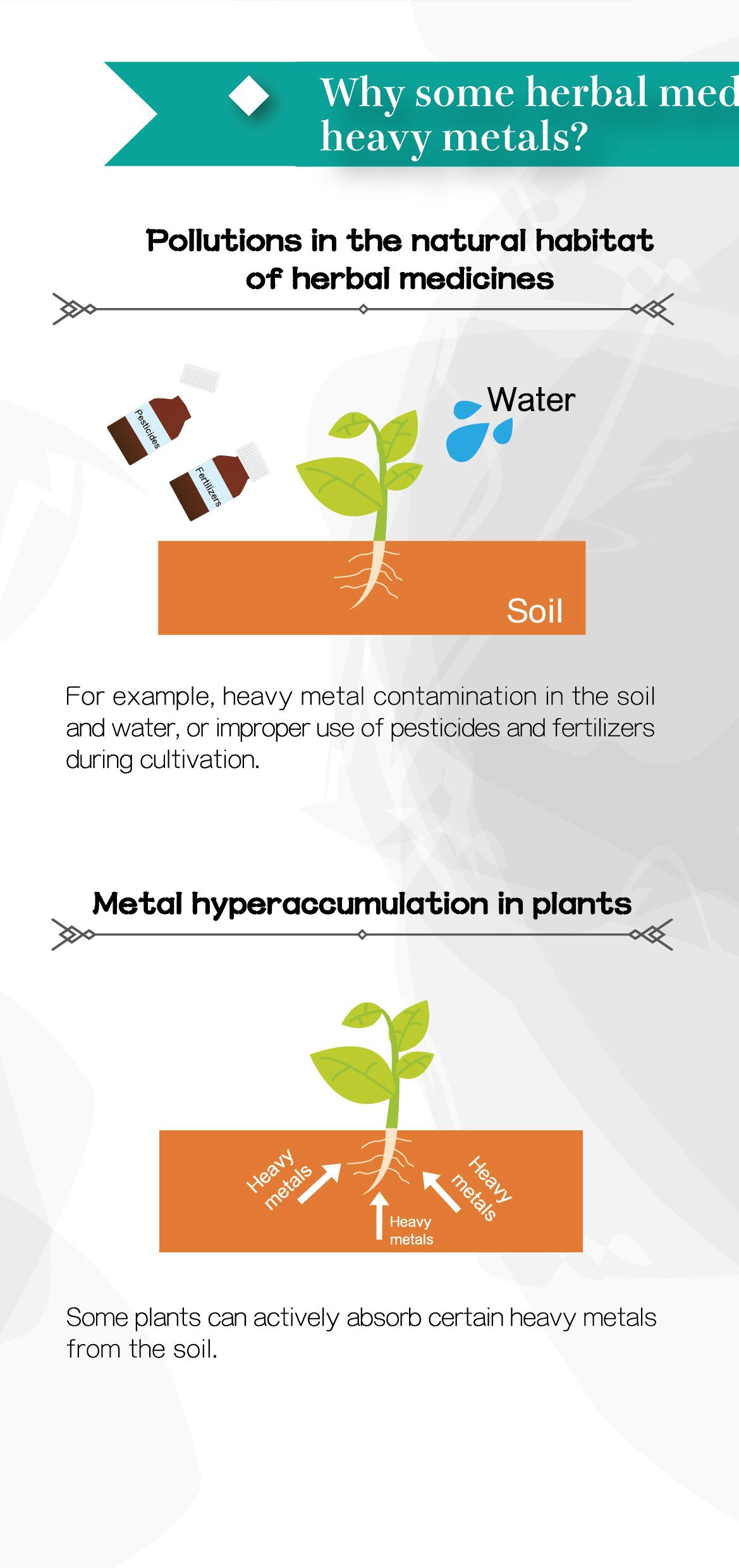
Pollutions in the natural habitat of herbal medicines
For example, heavy metal
contamination in the soil and water, or improper use of pesticides and fertilizers during cultivation.
Metal hyperaccumulation in plants
Some plants can actively absorb certain heavy metals
from the soil.
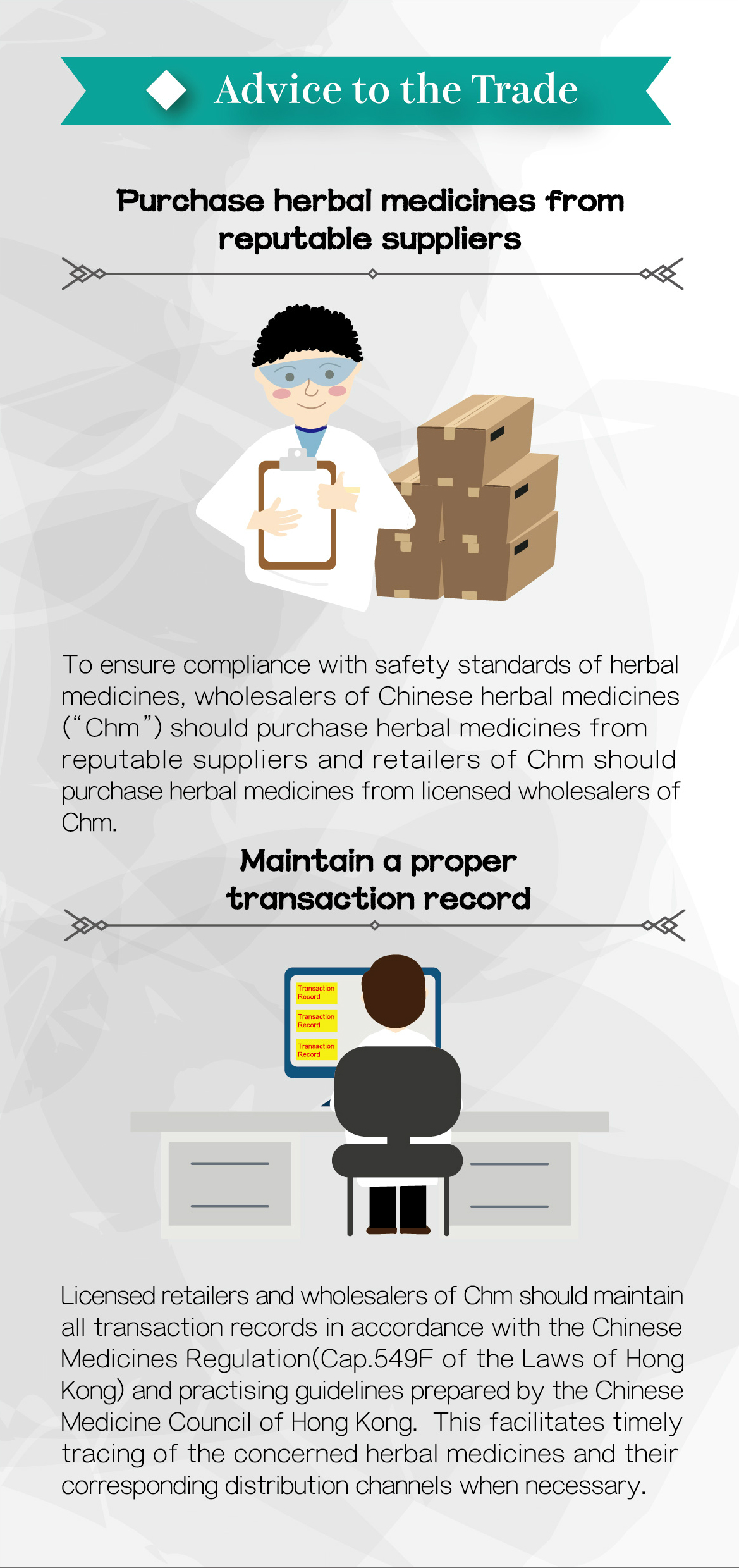
Advice to the Trade
Purchase herbal medicines from reputable suppliers
To ensure compliance with safety
standards of herbal medicines, wholesalers of Chinese herbal medicines (“Chm”) should purchase herbal medicines
from reputable suppliers and retailers of Chm should purchase herbal medicines from licensed wholesalers of Chm.
Maintain a proper transaction record
Licensed retailers and wholesalers of Chm should
maintain all transaction records in accordance with the Chinese Medicines Regulation (Cap.549F of the Laws of
Hong Kong) and practising guidelines prepared by the Chinese Medicine Council of Hong Kong. This facilitates
timely tracing of the concerned herbal medicines and their corresponding distribution channels when necessary.
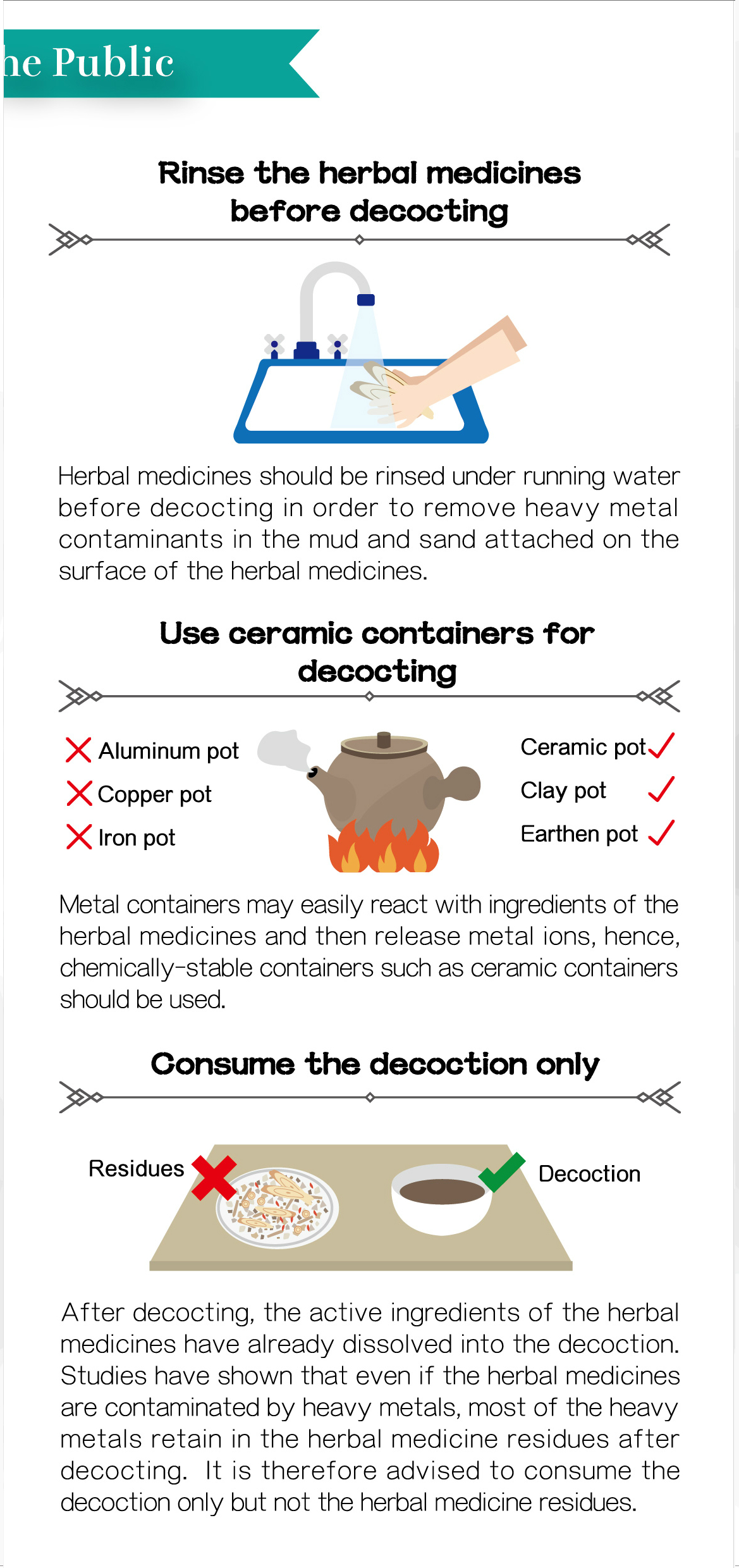
Advice to the public
Rinse the herbal medicines before decocting
Herbal medicines should be rinsed under
running water before decocting in order to remove heavy metal contaminants in the mud and sand attached on the
surface of the herbal medicines.
Use ceramic containers for decocting
Metal containers may easily react with ingredients of
the herbal medicines and then release metal ions, hence, chemically-stable containers such as ceramic containers
should be used.
Consume the decoction only
After decocting, the active ingredients of the herbal medicines
have already dissolved into the decoction. Studies have shown that even if the herbal medicines are contaminated
by heavy metals, most of the heavy metals retain in the herbal medicine residues after decocting. It is therefore
advised to consume the decoction only but not the herbal medicine residues.
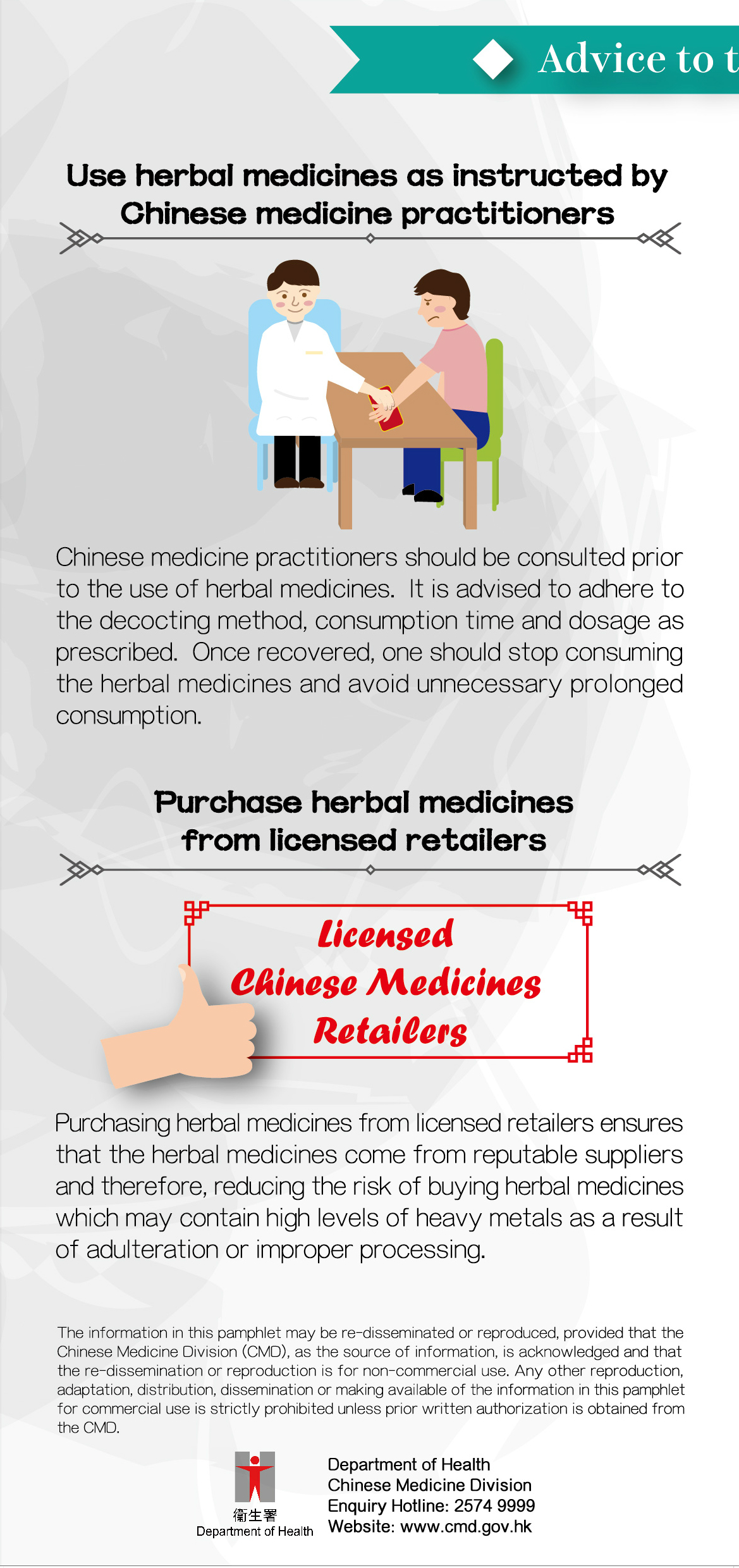
Use herbal medicines as instructed by Chinese medicine practitioners
Chinese medicine
practitioners should be consulted prior to the use of herbal medicines. It is advised to adhere to the decocting
method, consumption time and dosage as prescribed. Once recovered, one should stop consuming the herbal medicines
and avoid unnecessary prolonged consumption.
Purchase herbal medicines from licensed retailers
Purchasing herbal medicines from
licensed retailers ensures that the herbal medicines come from reputable suppliers and therefore, reducing the
risk of buying herbal medicines which may contain high levels of heavy metals as a result of adulteration or
improper processing.
The information in this pamphlet may be re-disseminated or reproduced, provided that the Chinese Medicine Regulatory Office (CMRO), as the source of information, is acknowledged and that the re-dissemination or reproduction is for non-commercial use. Any other reproduction, adaptation, distribution, dissemination or making available of the information in this pamphlet for commercial use is strictly prohibited unless prior written authorization is obtained from the CMRO.
Department of Health
Chinese Medicine Regulatory Office
Website: www.cmro.gov.hk